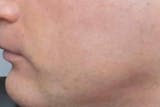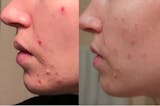Triggers are internal or external factors that can worsen eczema symptoms.
Managing eczema involves understanding and addressing triggers.
Eczema is a chronic skin condition characterized by periodic acute flares, marked by red, itchy, and inflamed skin. The severity and duration of an acute eczema flare are influenced by three main factors:
Trigger intensity
Triggers play a critical role in the severity and duration of an acute flare. You can think of them as an invading army outside the city gates.
There are various types of eczema, such as atopic dermatitis, contact dermatitis, dyshidrotic eczema, nummular eczema, seborrheic dermatitis, and stasis dermatitis. Some of the types have the same triggers while others have unique.
This section explores the different sources of eczema triggers, how they can be identified and what can be understood about the resultant eczema. This page introduces each of the types of triggers with reference to the detailed pages.
JUMP TO SECTION:
What Are Triggers?
Triggers are external or internal factors that initiate or worsen the symptoms of an acute flare - the tell-tale inflammation and irritation of a patch of skin.
Triggering substances can be present in the environment or enter the body through food and drink.
Triggers can vary significantly among individuals, and what causes a flare-up in one person might not affect another. Factors such as genetics, lifestyle, and environment can influence how a person reacts to specific triggers. It's essential for individuals with eczema to identify and understand their triggers.
The Role of Skin Barrier Strength In the Presence of Triggers
The skin barrier is the outermost layer of our skin, which plays a crucial role in maintaining our overall skin health. This layer is composed of flattened, dead skin cells (corneocytes) surrounded by a lipid matrix, which consists of ceramides, cholesterol, and fatty acids. It acts as the wall and gates of the city that not only retains moisture but also defends against triggers.
When there are triggers in the external environment, the skin barrier is responsible for the first line of defense of the body against the impact of those triggers. The immune system acts as backup to the skin barrier. The strength of the skin barrier can significantly influence how individuals with eczema react to various triggers in the environment.
In individuals with eczema, the skin barrier is often weakened or compromised leading to increased susceptibility to triggers. This compromised state can be due to genetic factors, reduced production of essential ceramides, or damage caused by scratching or exposure to large amounts of triggers.
The Role of Gut Strength In the Presence of Triggers
The gut plays a significant role in overall health, including the health of the skin. A strong gut helps maintain a balanced immune system which can influence the development and severity of skin conditions like eczema.
When triggers entered the digestive system, the strength of the gut can help modulate the immune system's response to triggers, reducing inflammation and the severity of flare-ups.
A weakened or imbalanced gut can exacerbate the immune system's response to triggers leading to increased inflammation and worsening eczema symptoms.
The Role of Immune System Sensitivity to Triggers
Sensitivity of the immune system to triggers can significantly influence how an individual with eczema responds to various external and internal factors.
A heightened immune response can exacerbate eczema symptoms, while a well-balanced immune system can help mitigate the impact of triggers and minimize flare-ups.
The individual nature of the immune system, combined with the skin barrier and gut strength help to explain why two people can encounter the same triggers, but have different outcomes.
Examples of Common Eczema Triggers
Understanding common eczema triggers can help individuals manage their condition and reduce flare-ups. Here is a brief summary of some typical triggers.
Allergens & Intolerances
Common allergens like pollen, pet dander, dust mites, and certain foods can cause an immune reaction leading to inflammation and worsening of eczema.
Climate and Environmental Factors
Dry or cold air, excessive heat, and humidity can trigger eczema flare-ups by causing skin dryness or increased sweating.
Stress
Emotional stress can weaken the immune system making the skin more susceptible to triggers and exacerbating eczema symptoms.
Hormones
Hormonal fluctuations, particularly in women, can trigger eczema flare-ups due to the impact of hormones on the immune system and skin health.
Diet
Unlike allergies, food sensitivities are not caused by an immune reaction but can still result in an increased inflammation and exacerbation of eczema. Also, some foods are known to promote inflammation in the body which can contribute to eczema flare-ups. Examples include processed foods, refined sugars, and trans fats.
Triggers for Specific Types of Eczema
While the above triggers can affect individuals with various forms of the condition, some triggers are more specific to certain types of eczema. Understanding these triggers can help individuals manage their eczema more effectively.
Atopic Dermatitis Triggers
Atopic dermatitis which is the most common form of eczema, is often linked to a genetic predisposition for skin barrier weakness and malfunctioning immune system. Triggers for atopic dermatitis include:
Allergens: Pollen, pet dander, dust mites, and certain foods can trigger atopic dermatitis flare-ups.
Dry skin: A genetically weak skin barrier, low humidity, cold weather, and harsh soaps can exacerbate skin dryness and lead to an acute atopic dermatitis flare.
Infections: Bacterial, viral, or fungal infections can worsen atopic dermatitis symptoms.
Contact Dermatitis Triggers
Contact dermatitis occurs when the skin comes into direct contact with an allergen or irritant. Triggers for contact dermatitis include:
- Allergens: Nickel, latex, poison ivy, and certain cosmetic ingredients can cause allergic contact dermatitis.
- Irritants: Harsh soaps, detergents, cleaning products, and chemicals can trigger irritant contact dermatitis.
Dyshidrotic Eczema Triggers
Dyshidrotic eczema is characterized by small, itchy blisters on the hands and feet. Triggers for dyshidrotic eczema include:
Stress: Emotional stress can trigger dyshidrotic eczema flare-ups.
Allergens: Nickel, cobalt, and chromium salts can exacerbate dyshidrotic eczema.
Moist conditions: Prolonged exposure to water, excessive sweating, or occlusive footwear can trigger dyshidrotic eczema.
Nummular Eczema Triggers
Nummular eczema, also known as discoid eczema, presents as coin-shaped patches of irritated skin. Triggers for nummular eczema include:
- Dry skin: Cold weather, low humidity, and harsh soaps can exacerbate nummular eczema.
- Injuries: Skin injuries, such as insect bites, burns, or abrasions, can trigger nummular eczema flare-ups.
Seborrheic Dermatitis Triggers
Seborrheic dermatitis affects areas of the skin with a high density of oil-producing glands. Triggers for seborrheic dermatitis include:
- Yeast overgrowth: Malassezia yeast, which naturally lives on the skin, can overgrow and trigger seborrheic dermatitis flare-ups.
- Stress: Emotional stress can exacerbate seborrheic dermatitis symptoms.
- Cold weather: Low temperatures and dry conditions can worsen seborrheic dermatitis.
Stasis Dermatitis Triggers
Stasis dermatitis is caused by poor blood circulation in the lower legs, resulting in inflammation and skin changes. Triggers for stasis dermatitis include:
- Venous insufficiency: Impaired blood flow in the veins of the legs can lead to stasis dermatitis.
- Leg injuries: Trauma to the lower legs can trigger or exacerbate stasis dermatitis.
Managing Eczema Triggers
Effectively managing eczema triggers is a vital part of controlling the condition and reducing flare-ups. By understanding and addressing the factors that contribute to eczema symptoms, individuals can take control of their skin health and improve their quality of life.
How Managing Triggers Can Help
Taking steps to identify and manage eczema triggers can significantly reduce the frequency and severity of flare-ups. By avoiding or minimizing exposure to known triggers, individuals can help prevent skin irritation and inflammation, leading to better overall skin health.
Collaborating With Healthcare Providers
Working closely with healthcare providers, such as dermatologists, allergists, and nutritionists, is crucial for effective eczema management. These professionals can help identify personal triggers, develop tailored treatment plans, and provide guidance on how to manage eczema triggers effectively.
Conclusion
Eczema triggers are diverse and can vary among individuals. Irritants, allergens, climate and environmental factors, stress, hormones, and infections are some of the most common triggers. Specific types of eczema may also have unique triggers, making it essential to understand individual specific condition and its associated factors.
Effectively managing eczema triggers is a critical aspect of controlling the condition and reducing the frequency and severity of flare-ups. By understanding the role of the skin barrier, gut health, and immune system sensitivity in the context of triggers, individuals can take targeted steps to address their eczema.
Share your experiences with us! Tell us what has and hasn’t worked for you. What did we miss in this article that you've found personally impactful? Your insights can help others better understand and manage their eczema.



